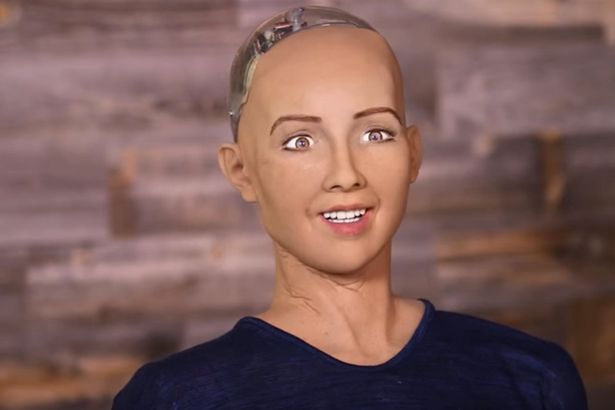advertisement
Sophia the robot granted Saudi Arabia’s Citizenship
On October 25, at the Future Investment Summit in Riyadh, Sophia, a humanoid robot developed by Hong Kong-based company Hanson Robotics, was granted Saudi Arabian citizenship, becoming…

On October 25, at the Future Investment Summit in Riyadh, Sophia, a humanoid robot developed by Hong Kong-based company Hanson Robotics, was granted Saudi Arabian citizenship, becoming the first robot ever to have a nationality.
The announcement was made during a panel moderated by business writer Andrew Ross Sorkin of CNBC.
“We have a little announcement. We just learnt, Sophia; I hope you are listening to me, you have been awarded the first Saudi citizenship for a robot,” said Sorkin.
advertisement
In response to that Sofia thanked the Kingdom of Saudi Arabia saying that she was honored and proud for this unique distinction. “It is historic to be the first robot in the world to be recognized with citizenship,” she added.
Sophia was activated on April 19, 2015. She is modelled after actress Audrey Hepburn, and is known for her human-like appearance and behaviour compared to previous robotic variants.
According to the manufacturer, David Hanson, Sophia has artificial intelligence, visual data processing and facial recognition. Sophia also imitates human gestures and facial expressions and can answer certain questions and to make simple conversations on predefined topics.
advertisement
The robot uses voice recognition technology from Alphabet Inc. (parent company of Google) and is designed to get smarter over time. Sofia’s intelligence software is designed by SingularityNET. The AI program analyses conversations and extracts data that allows Sophia to improve responses in the future.
Hanson designed Sophia to be a suitable companion for the elderly at nursing homes, or to help crowds at large events or parks.
However, her citizenship was not taken positively across. Her Saudi Citizenship has since attracted controversy as some netizens based their critics on Saudi Arabia’s human rights record.
advertisement
In the recent past, AI has taken a big leap. What was once in the realm of science fiction has become a reality. In fact, The experts from MIT predict that AI will outperform humans in the next 10 years in tasks such as translating languages (by 2024), writing high school essays (by 2026), and driving trucks (by 2027).
But many other tasks will take much longer for machines to master. “AI won’t be better than humans at working in retail until 2031, able to write a bestselling book until 2049, or capable of working as a surgeon until 2053,” the report shows.
The experts go on to predict a 50 percent chance that AI will be better than humans at everything in about 45 years.